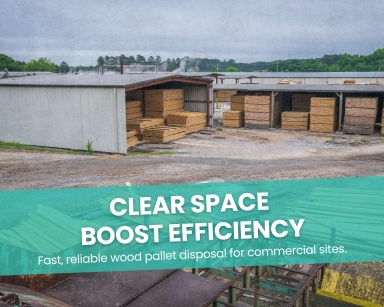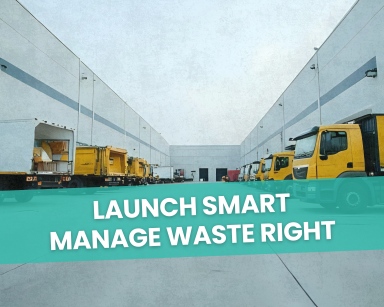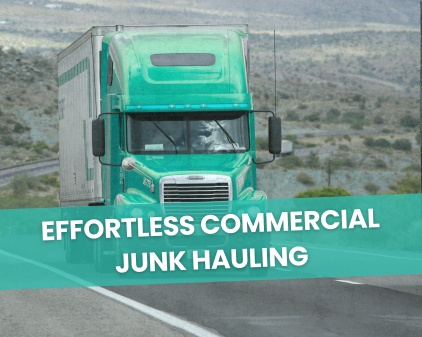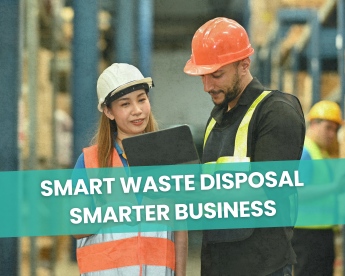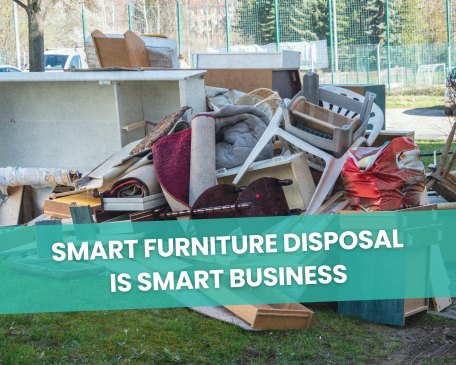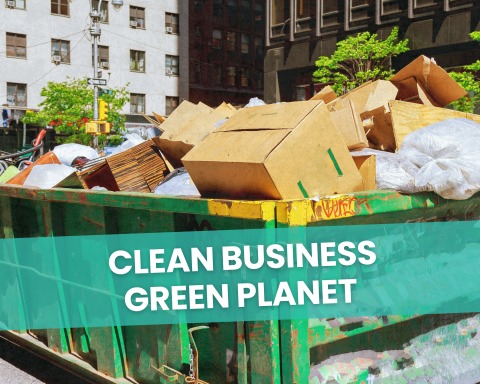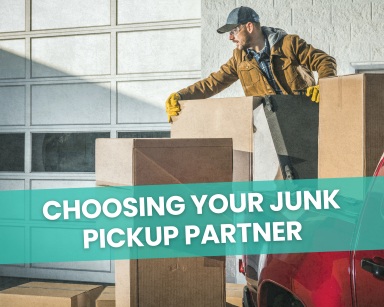Sustainable PPE Disposal: Strategies for Reducing Mask Waste
In the quiet dawn hours of a coastal city, while nature awakens, a shocking scene emerges. Miles upon miles of sandy beaches are dotted not just with seashells, but with discarded face masks, a haunting reminder of the pandemic’s indelible mark on our environment. With over 75 million masks being discarded daily globally, the economic and ecological implications are hard to ignore. The imperative question for businesses today isn’t just about profitability or market share, but about sustainable PPE disposal. How can they turn the tide?
Table of Contents
Understanding the Scale and Impact
We’re faced with a modern-day dilemma. While masks serve as a shield against viral adversaries, they’re simultaneously environmental villains when disposed of carelessly.
The Environmental Cost of Wasted Masks
The world grapples with a new type of pollution. Our oceans, previously threatened by plastic bottles, now wrestle with waves of masks. Creatures, from turtles to seabirds, mistake these masks for prey, leading to tragic consequences. Reports from the World Wildlife Fund indicate an alarming increase in wildlife fatalities linked directly to mask waste.
- Mask Composition: Most disposable masks are made of multiple layers, often using polypropylene. This plastic takes centuries to decompose, persistently afflicting ecosystems.
- Beach Impact: The picturesque coastline, once a symbol of serenity, now faces pollution. Coastal areas are particularly vulnerable as they serve as the interface between land and sea, becoming hotspots for mask accumulation.
- Carbon Footprint: Manufacturing, transporting, and eventually discarding these masks also leaves a significant carbon footprint, adding another layer to their environmental toll.
Economic Implications for Businesses
The emphasis on environmental implications of mask waste shouldn’t overshadow the economic dimensions. Mishandling mask disposal isn’t just an ecological misstep; it’s a business blunder. The impact on businesses can be broken down as:
- Legal Liabilities: Municipalities globally spend billions on clean-up operations. For businesses, incorrect disposal methods can attract hefty fines, and more importantly, a tarnished public image.
- Brand Impact: Modern consumers are increasingly environmentally conscious. Companies that neglect their waste management can face consumer backlash, potentially harming their bottom line.
Adopting sustainable strategies can position a business as an industry leader, yielding long-term dividends beyond just monetary gains.
A Deep Dive into Proper PPE Disposal Techniques
It’s worth noting that the PPE disposal challenge is not only about masks but a spectrum of protective equipment. While each has its specificities, the common thread is the need for responsible management. An aligned approach, considering every PPE type, can make strategies more holistic and effective.
The Importance of Proper PPE Disposal
Each discarded mask or glove potentially carries pathogens. When not disposed of correctly, these can contaminate our ecosystems. Furthermore, businesses face not just environmental backlash, but legal repercussions.
- Contamination Risks: Incorrect disposal can turn these protective tools into contamination sources, paradoxically negating their original purpose.
- Landfill Pressure: Already burdened landfills face increased strain with the improper disposal of PPE. Space is finite, and overburdened landfills can lead to other environmental issues like groundwater contamination.
- Public Health: Masks left in public spaces can become breeding grounds for bacteria and pathogens, adding a dimension to the health risks.
How to Properly Dispose of an Expired Face Mask
Taking a leaf out of Happen Ventures’ book, the steps are clear:
- Segregation: It’s vital to use dedicated bins or containers for mask disposal to avoid cross-contamination.
- Storage: Before disposal, it’s recommended to store these masks in a sealed bag for at least 72 hours to reduce the risk of viral transmission.
- Beneficial Reuse: Engaging with companies like Happen Ventures, which specialize in PPE repurposing, can be a win-win solution, balancing cost and environmental impact.
Beneficial Reuse: A Gold Standard in PPE Disposal
Transitioning from a linear “use and discard” model, the focus now shifts to a circular economy.
The Essence of Beneficial Reuse
Simply put, beneficial reuse champions the concept of repurposing. Instead of viewing expired face mask removal as a burden, envision that it can be used as a raw material for another product. Rather than contributing to the mounting waste problem, businesses can adopt this green strategy. Repurposing isn’t just recycling; it’s breathing a new purpose into used items.
- Closed-loop System: Implementing beneficial reuse creates a closed-loop system where waste is continually repurposed, reducing the need for new raw materials and energy consumption.
- Broader Impact: This process not only benefits businesses economically but also aids community development by supporting local industries and initiatives through repurposed materials.
How Companies Transform Waste to Worth
The roadmap is set by trailblazers like Happen Ventures. With a touch of innovation and commitment, businesses can rewrite their sustainability stories. From creating art installations to furniture fillings, the possibilities with reused masks are vast and varied.
- Brands such as Adidas have launched footwear made from ocean plastics, setting precedents. If similar innovations target PPE, we might soon see products in the market that carry stories of transformation and responsibility.
- Happen Ventures, in their ground-breaking project in Puerto Rico, taking expired sanitizers and donating them to communities in need, epitomizes the concept.
The Road to Sustainability: From Usage to Disposal
Our journey with a face mask doesn’t end with its last wear; it’s merely a transition.
Pivoting from Consumption to Conservation
Every business must introspect: Are we over-consuming? Sensitizing employees and stakeholders can significantly reduce mask usage, without compromising safety. Think reusable masks, lesser wastage, and a smaller carbon footprint.
How Beneficial Reuse Supports Sustainability Goals
Beyond immediate waste management, beneficial reuse dovetails with broader sustainability aspirations. Reduced landfill pressure, positive community engagement, and an elevated brand image are just the tip of the iceberg.
- By adopting beneficial reuse strategies, businesses can potentially cut down their carbon emissions by reducing the production of new materials.
- Decrease in landfills can also lead to reduced methane emissions, a potent greenhouse gas.
Navigating the Nitrile Challenge: Gloves in the Spotlight
Amid the focus on masks, another environmental adversary lurks in the shadows: nitrile gloves.
The Growing Concern Over Nitrile Gloves Disposal
Over 50 billion gloves are discarded monthly. They take decades, if not centuries, to decompose. This isn’t just a statistic; it’s an impending ecological crisis. Adapting Beneficial Reuse for Nitrile Gloves Disposal can proved to be an effective solution in the long run. Drawing parallels from masks, the principles of beneficial reuse apply here too. Initiatives across the globe are turning these gloves into rubber mats, shoe soles, and even playground surfaces.
Conclusion:
In this battle against waste, businesses are both the warriors and the strategists. The choices made today echo in the annals of environmental history. It’s high time for a shift, from wasteful to resourceful, from passive to proactive. Because in the end, the journey towards a greener future isn’t just about masks or gloves; it’s about a collective commitment to our only home, Earth.


